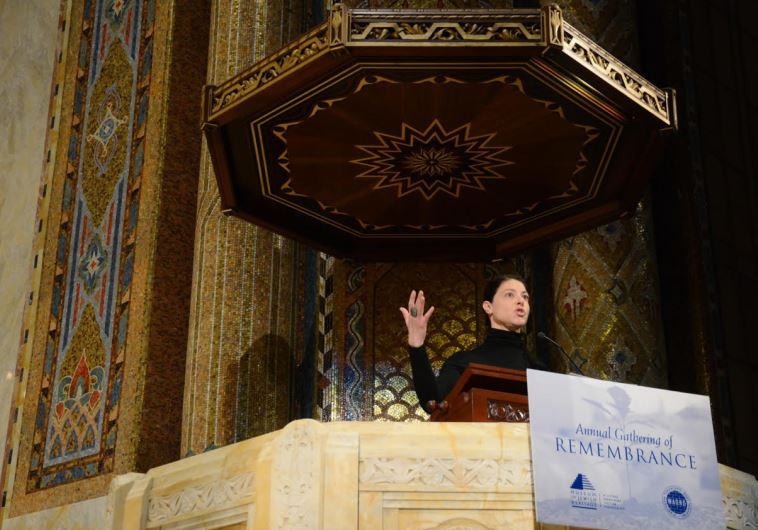'My grandfather did the inconceivable - negotiated with Nazis - to save Jews'
MK Michaeli says Livingstone "abused Holocaust for political needs, tried to downgrade the atrocity."
 MK Merav Michaeli (Zionist Union) speaks at New York Reform synagogue Temple Emanu-El's Yom Hashoa ceremony(photo credit: GILI GETZ)Updated:
MK Merav Michaeli (Zionist Union) speaks at New York Reform synagogue Temple Emanu-El's Yom Hashoa ceremony(photo credit: GILI GETZ)Updated: